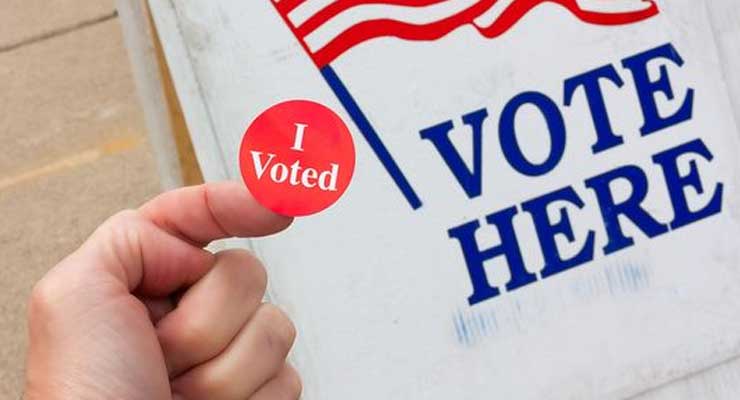
The latest Kentucky ballot access ruling is of no benefit to third party Presidential candidates From Ballot Access News:
On July 8, U.S. District Court Judge Gregory Van Tatenhove, a Bush Jr. appointee, upheld Kentucky’s definition of a qualified political party, which is a group that got 2% of the presidential vote within Kentucky in the previous presidential election. The 18-page decision in Libertarian Party of Kentucky v Grimes, e.d., 3:15cv-86, does not even discuss another aspect of the law that the plaintiffs complained about, namely that if an unqualified party wants to run a full slate of candidates for statewide state office, it must submit a separate petition for each of the 9 offices. The decision does not mention the evidence that a new party would need hundreds of thousands of signatures on multiple petitions if it wanted to run for all federal and state office. The other plaintiff in the case besides the Libertarian Party is the Constitution Party.
The only state interest identified by the decision is the need to “prevent voter confusion, avoid ballot overcrowding, and prevent frivolous candidates.” This is boiler-plate language from past unfavorable ballot access decisions.
From the U.S. District Court:
Political groups that fail to achieve political organization status must undertake repeated petitioning, and the Court recognizes that may not be preferable for those associations. Nevertheless, Kentucky’s petition requirement itself does not appear to be particularly burdensome when considered in conjunction with the Commonwealth’s other election laws. For instance, the Plaintiffs make no reference to an early deadline for filing petitions or some other restriction that hinders their abilities to obtain a place on the presidential ballot in the first instance.
Compare, e.g., Williams, 393 U.S. at 24-26 (describing the “series of election laws” which have “made it virtually impossible for a new political party” to be placed on the Ohio ballot); Blackwell, 462 F.3d at 586-87 (discussing “the burden imposed by statutes requiring political parties to file registration petitions far in advance of the primary and general elections”). And while the Plaintiffs repeatedly emphasize the difficulties that come with petitioning for multiple candidates’ ballot access throughout a four-year term, achieving a place on the presidential ballot so as to attempt to achieve blanket ballot access has not itself been a problem.
Leave a Reply